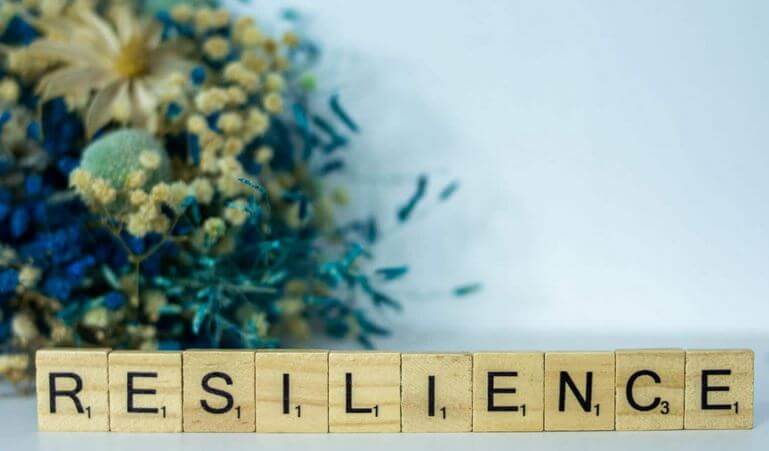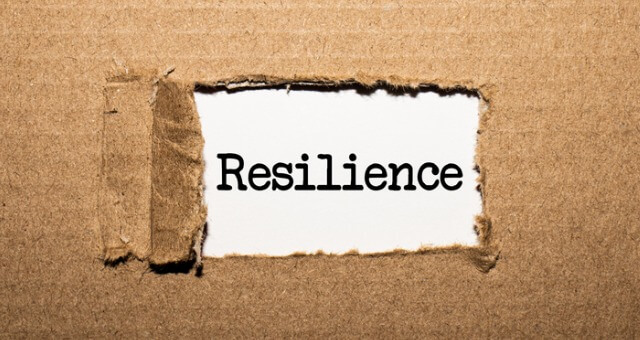 Key Factors Associated with Resilience
Key Factors Associated with Resilience
Have you ever wondered why some people seem to bounce back from tough situations more easily than others? In many cases, resilience is what separates one group from the other. This ability to adapt and thrive when things get tough determines our ability to overcome setbacks and challenges as they arise. You can maintain resilience in good and tough times and I’ll share the details with you here.
Fortunately, resilience isn’t a fixed characteristic you’re either born with or not. Instead, it can be learned and developed over time. Becoming more resilient will help you face the future with confidence, knowing that you can handle whatever comes your way. Here are five key factors associated with resilience:
1. Emotional Regulation
Resilient people are able to control their emotions when dealing with stressful situations. Instead of blindly reacting to how they feel about the situation, they are able to respond with logic and reason. This leads to better outcomes and results, which increases self-confidence and self-worth.
This emotional regulation requires understanding their emotions and finding healthy ways to express them. By utilizing methods such as mindfulness and meditation, they can tap into their emotions and control how they respond under difficult conditions.
2. Positive Outlook
Optimism isn’t just a sunny outlook. It’s the ability to anticipate positive outcomes and have faith in your ability to create them. Optimistic people see challenges as temporary setbacks or hurdles they can overcome, and often welcome the challenge as a way to grow stronger.
Resilient people tend to have a confident, positive outlook that helps them handle setbacks more productively. They’re able to bounce back and keep going in spite of the challenges they face.
You can nurture a more optimistic outlook by practicing gratitude, setting realistic and meaningful goals, and journaling about positive experiences.
3. Problem-Solving Skills
Resilient people focus on solving problems, rather than avoiding them. This proactive approach to problem solving helps overcome feelings of helplessness and overwhelm. It’s difficult to worry about how to handle tough situations when you are actively engaged in solving them.
You can improve your problem-solving skills by becoming organized, brainstorming solutions, and using your imagination. Look for answers by analyzing what’s worked in the past and don’t be afraid to ask for help when needed.
4. A Strong Support Network
Everyone needs help on occasion. Resilient people understand the value of having a reliable support network comprised of trusted friends, family members, colleagues, and members of their community. This network can provide emotional and moral support, hands-on help, and fresh perspectives when needed.
Building supportive relationships takes effort, but the rewards are worth it. As the saying goes, “To have a good friend, be a good friend.” Be genuine and honest, demonstrate compassion and empathy, and spend time communicating and bonding with others to build solid, healthy relationships.
5. Strong Self-Confidence
Resilient people are confident in their ability to handle whatever life throws at them. Over time, this faith in their ability to navigate challenging circumstances becomes a self-fulfilling prophecy. After each successful encounter, they become even more certain of their ability to handle future challenges.
To increase self-confidence, set achievable goals and celebrate your wins. If something doesn’t go as planned, don’t think of it as a failure. Instead, analyze what you learned from the experience and identify what you can do differently in the future. As you focus on cultivating these five key factors associated with resilience, you’ll soon find you’re better equipped to handle life’s inevitable challenges.
Ways That Self-Reflection Increases Your Resilience
Resilience determines how well we handle life’s challenges. It enables us to bounce back from setbacks, adapt to change, and move forward in a positive way regardless of circumstances. Fortunately, resilience isn’t an inherent and immutable characteristic you’re either born with or not. Instead, it is something you can develop and cultivate over time.
Self-reflection is a useful tool you can leverage to become more resilient. Reflecting on your thoughts, beliefs, attitudes, motivations, strengths, and weaknesses is a great way to gain a better understanding of yourself and what you’d like to achieve. Taking an honest look at yourself can help you learn, grow, and become more resilient over time. Here are 7 Ways Self-Reflection Can Increase Resilience:
1. Self-reflection helps you gain a better understanding of who you are and what’s important to you. This clarity can give you the strength to withstand hardships and challenges to achieve and protect the things that are meaningful to you.
2. It improves your decision-making skills, which allows you to make tough choices and handle difficult situations with confidence.
3. Understanding yourself helps you know when and how to re-evaluate your circumstances. From there, you can determine the best course of action as you move forward.
4. Self-reflection fosters a sense of well-being by understanding what inspires and motivates you. This helps build self-esteem, which allows you to set healthy boundaries and deal with negative interactions in a positive way.
5. It plays a role in your self-development and personal growth. It helps you evaluate your strengths and weaknesses, identify what went right or wrong in different situations, and pinpoint areas for future growth and improvement.
6. It can lead to stronger relationships with others. As you get to know yourself better, your communication skills improve as you learn to express yourself clearly and honestly. You may also take greater accountability for your actions as you gain more insight into what drives your decisions.
7. Self-reflection can also foster a greater sense of peace and acceptance because it involves practicing mindfulness and being present with yourself in the moment. This awareness that you are okay in the present in spite of your circumstances allows you to adjust and go with the flow when necessary.
Practicing Self-Reflection for Resilience in Good and Tough Times
As you can see, practicing self-reflection can lead to long-term personal growth. Evaluate your thoughts, emotions, and reactions as you encounter challenging situations and consider how your strengths and weaknesses affect the outcome of each scenario.
Ask yourself open-ended questions such as “What could I have done differently?” Notice the thoughts and feelings that arise with each question and reflect on why you believe they came to mind.
Keep a journal of your thoughts and responses to these questions. Include frustrating experiences, tough conversations, and upcoming events that leave you feeling stressed or anxious. On the flip side, write about the challenging situations and obstacles you handled well. Give yourself credit where it is due.
You can go deeper into this process by practicing meditation. Take a few minutes to sit quietly and pay attention to what comes to mind. Notice which thoughts seem fleeting and which ones linger. Use this time to get to know your strengths and weaknesses, and your thoughts and fears on a deeper level. These insights will help you face future challenges and setbacks with more confidence and resolve.
7 Ways to Build Resilience in Tough Times
Life is full of ups and downs, and challenges are inevitable. In these difficult moments resilience becomes an essential tool to help you not just endure adversity, but also grow stronger through it.
Resilience is the inner strength that enables you to adapt, bounce back, and maintain your well-being no matter what life throws your way. It’s a trait that can be developed and nurtured, allowing you to navigate the storms of life with grace and determination. I use this strategy in my online business as I work with people wanting to create a profitable side hustle.
Resilience isn’t only about avoiding pain, however. It can also help you thrive in the face of adversity. Here are 7 ways you can build resilience during tough times:
1. Cultivate Optimism Optimism plays a key role in building resilience. It allows you to view setbacks as temporary and solvable, which fosters hope and perseverance. Practicing self-compassion is equally important—being kind to yourself during tough times instead of engaging in self-criticism can make a significant difference in your ability to stay strong.
Alongside this, practicing gratitude can shift your mindset toward a more positive outlook. Focusing on the good in life, no matter how small, strengthens your resilience.
2. Learn Coping Mechanisms Healthy coping mechanisms are essential when facing adversity. These could include engaging in physical activities, journaling, or seeking professional help. Additionally, connecting with trusted friends, family members, or support groups provides a sense of belonging and comfort, offering emotional support when you need it most.
3. Build Mental Toughness Strengthening your mental resilience is key to managing tough situations. You can do this by challenging negative beliefs and replacing them with more empowering and realistic thoughts. Practices like mindfulness and meditation are also powerful tools for mental resilience. These techniques help cultivate self-awareness, allowing you to better manage stress and remain focused even during challenging times.
4. Harness a Growth Mindset A growth mindset – the belief that you can develop your abilities through hard work and learning – is essential for building resilience. When you view challenges as opportunities for growth, you become more likely to persevere in the face of adversity. By embracing new experiences, learning from mistakes, and continuously evolving, you’ll build strong mental endurance that will help you tackle life’s challenges with confidence.
5. Maintain Your Physical Health Your physical health plays a significant role in your ability to cope with adversity. Engaging in regular exercise can reduce stress, improve your mood, and enhance overall resilience. Find activities you enjoy and incorporate them into your routine—whether it’s walking, yoga, or playing a sport, these habits will have a profound impact on both your physical and emotional well-being.
Pay attention to your diet, as well. A balanced diet rich in nutrients fuels your body and mind, giving you the energy needed to face challenges head-on. In addition, prioritizing rest and self-care is crucial. Proper sleep, relaxation techniques, and activities that bring joy help restore your energy levels, making it easier to manage stress and adversity.
6. Set SMART Goals Setting SMART (Specific, Measurable, Achievable, Relevant, Time-bound) goals helps you maintain a sense of progress and achievement, even in the face of difficulties. Breaking larger goals into smaller, manageable steps gives you a clearer path forward.
7. Embrace Challenges and Learn from Setbacks Seeking out challenges is a crucial part of resilience-building. By embracing new experiences, you foster personal growth and strengthen your resilience. Learning from setbacks is equally important—resilient people see failures not as permanent or personal but as opportunities for learning and growth.
Building resilience is an ongoing process that helps you thrive in spite of life’s inevitable challenges. By cultivating optimism, developing coping skills, and taking care of both your mind and body, you can grow stronger and more adaptable in the face of adversity. Resilience is a skill you can continuously develop, enabling you to rise above obstacles and embrace the journey of personal growth.
I’m bestselling USA Today and Wall Street Journal author Connie Ragen Green, practicing each day to maintain and grow my resilience in good and tough times, and mentoring others to do the same. Connect with me and let’s discover how we can bring more joy to the world while changing our own lives in the process.


Leave a Reply